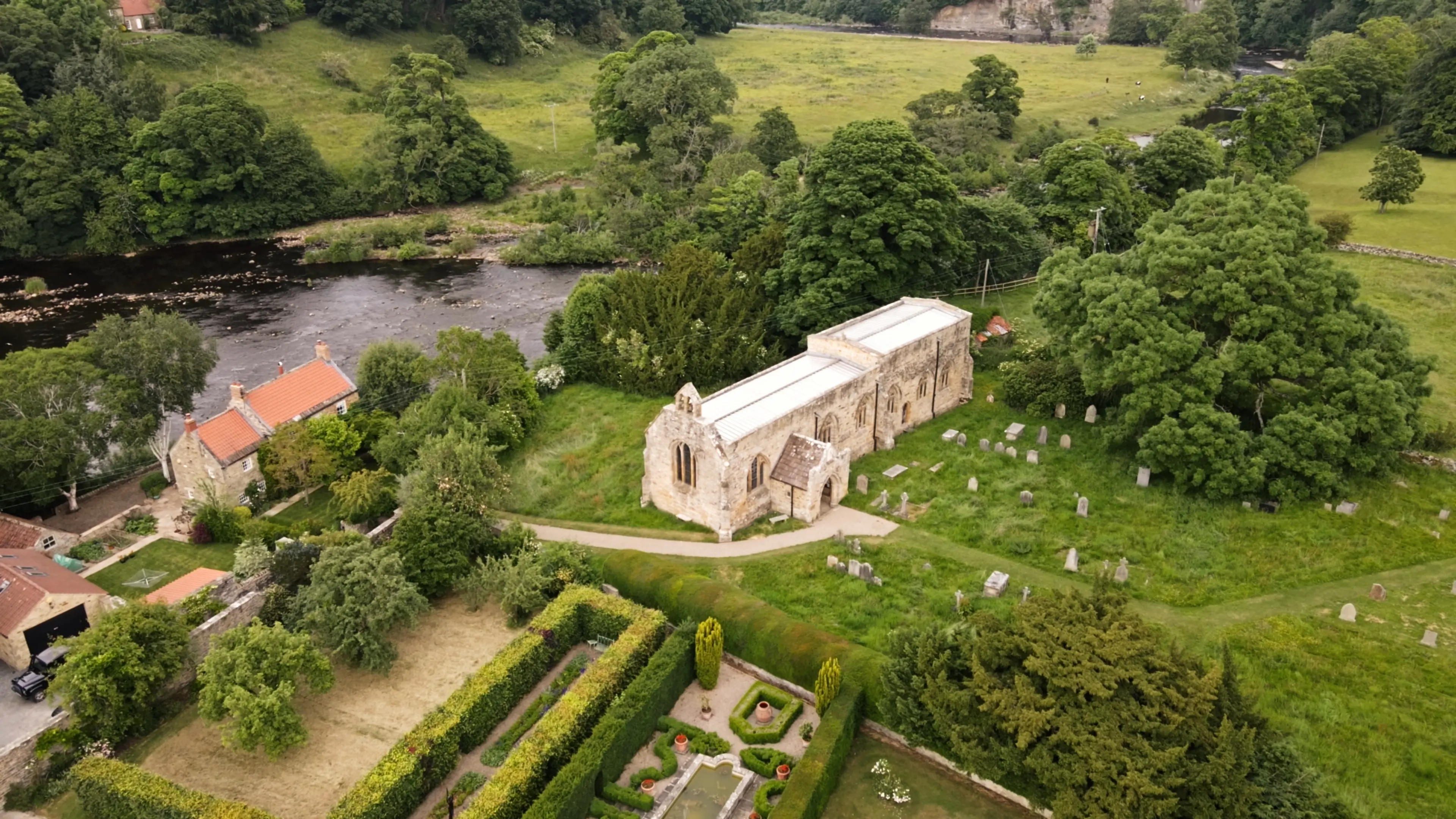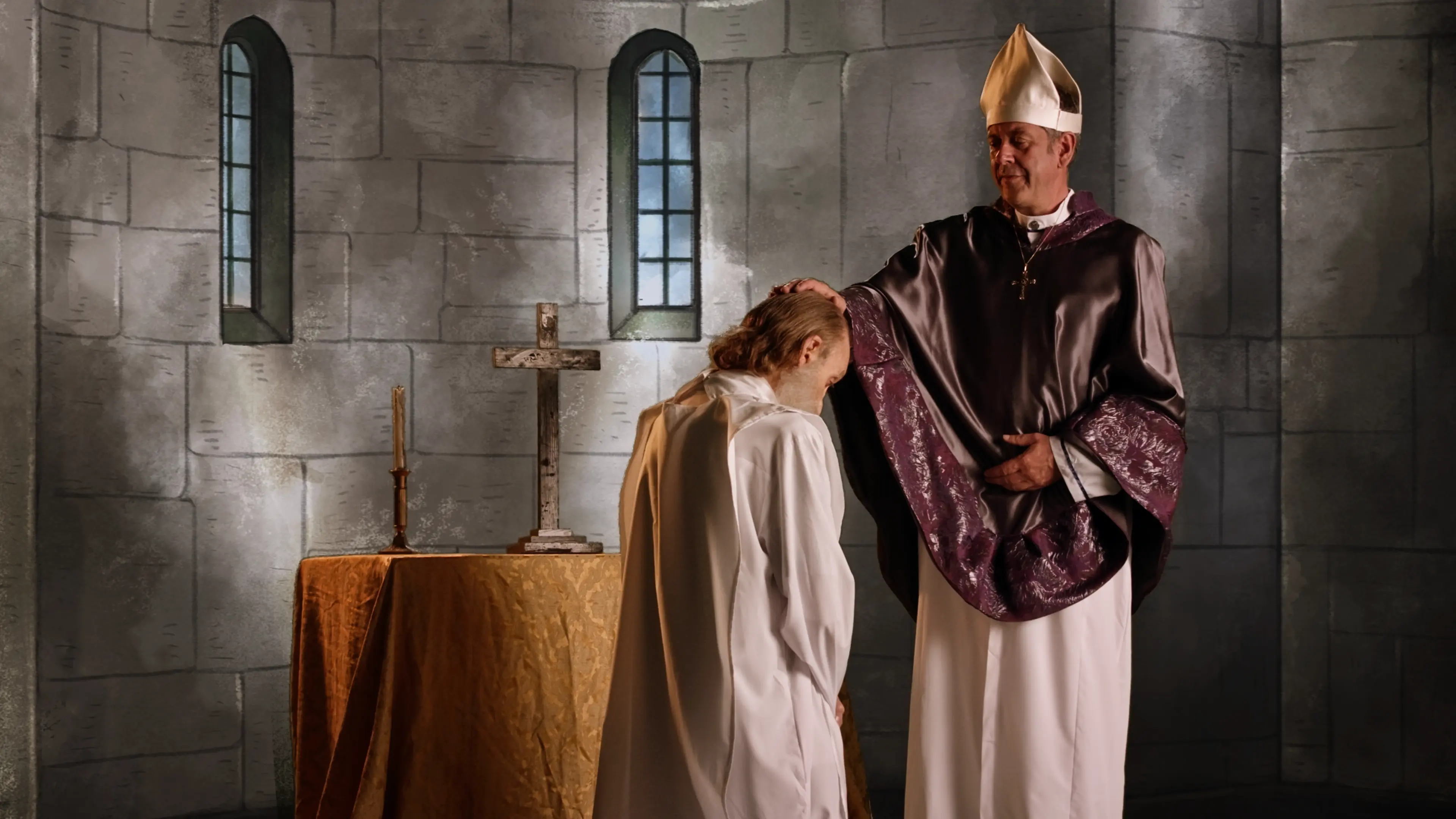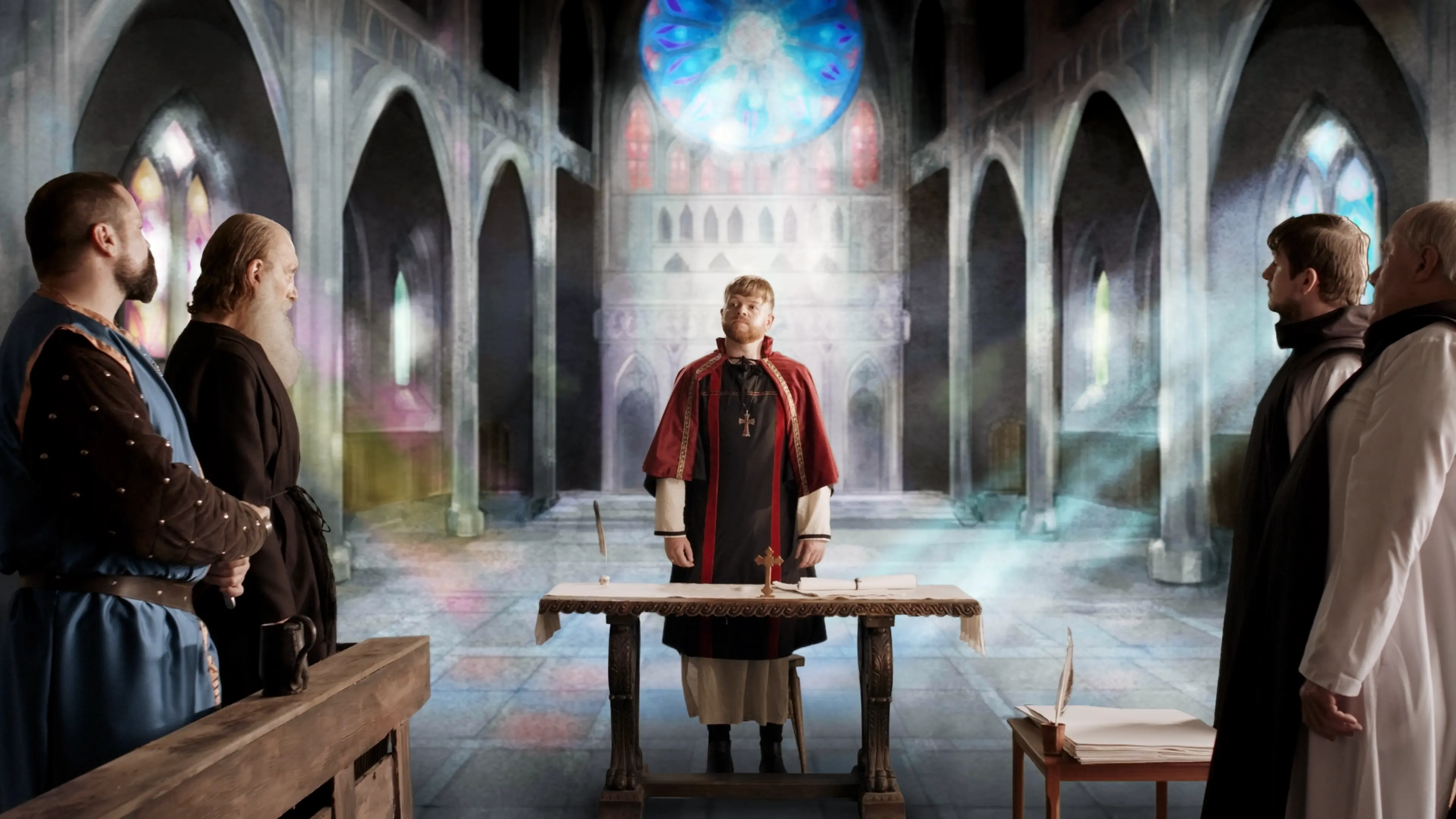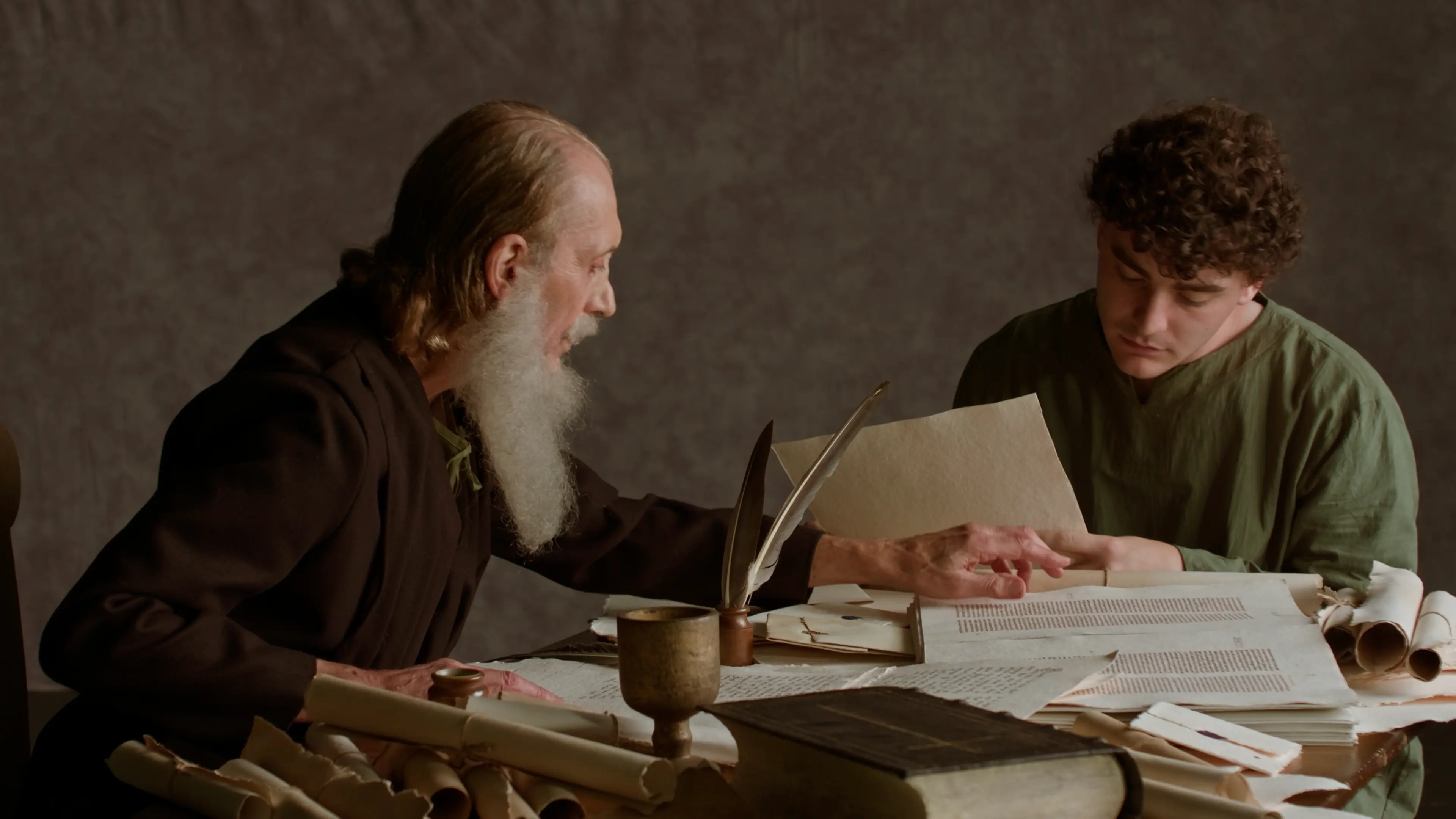The Life of John Wycliffe
Click a year to read about Wycliffe's life

Wycliffe the Child
Nobody knows exactly when John Wycliffe was born, though estimates range from 1320 to 1330. His mother was named Catherine, and his father Roger was Lord of the Manor – the lowest rung on the ladder of nobility.

The England in which Wycliffe grew up was marked by conflict with France and Scotland, as well as long running feuds between rival barons. His childhood, however, was likely more impacted by local events: the county fayre coming to town, for example, or a new watermill going up. Wycliffe later believed that even before his birth, God had planned out the whole path of his life, from time into eternity.
Wycliffe the Survivor
Few events in human history have cast as long a shadow as the Black Death. Spreading across Europe from the East to the West, the Plague left devastation behind it. Estimates of the death toll range from 75-200 million people, perhaps up to half the population of Europe. Those who survived were doubtless scarred for life, and John Wycliffe would have been no exception.

In the aftermath of the Plague, society had to be rebuilt from the ground up, and many old conventions were quietly replaced with innovative new ideas, in agriculture, technology, politics and even religion.
Wycliffe the Student
When exactly John Wycliffe arrived in Oxford, and how old he was when he got there, are subjects of debate among scholars. Despite the University being established for centuries as a fixture in Oxford, the scholars did not get on well with the townsfolk. John Wycliffe may well have witnessed the sudden violence of the St Scholastica Day riots in 1355 between “town and gown” in which almost a hundred people were killed.

Despite the tensions, Wycliffe took to academic life like a fish to water. After mastering the fundamentals, he started a postgraduate degree in philosophy, studying the work of legendary men like Plato and Aristotle.
Wycliffe the Priest
At some point during his studies, John Wycliffe stepped sideways from the University into the Church. The two institutions were very closely intertwined in any case, and it is likely that Wycliffe had always had ambitions to be a priest. In a world where your status at birth defined your life, the church offered a rare opportunity for social mobility.

Ordained as a priest, Wycliffe would have taken a vow of celibacy, denying himself the chance of a family and devoting himself to the Kingdom of God.
Wycliffe the Scholar
In 1372, Wycliffe graduated as a Doctor of Theology. In this new role, Wycliffe was acknowledged by his peers as one of the leading scholars in Oxford, and therefore in all England.

The leading Doctors of Theology in Christendom would usually receive a nickname that defined them as a teacher and scholar. For example, Thomas Aquinas was called Doctor Angelicus (the Angelic Doctor) and Thomas Bradwardine was Doctor Profundis (the Profound Doctor). John Wycliffe quickly became known as Doctor Evangelicus (the Evangelical Doctor) because of his passion for the Bible.
Wycliffe the Advocate
It was Wycliffe's development of Dominion Theory that kick-started his controversial public career. He researched the notion of authority, boldly asking who truly held the right to exercise power in England. It made him very popular with some, but others held him in contempt.

John of Gaunt, the royal Duke of Lancaster, was delighted with the idea that the church should hand over its wealth to the crown. William Courteney, Bishop of London, was horrified that Christ's church be placed under state control. Wycliffe believed that only a radical return to apostolic poverty was enough to rescue the church from its own corruption.
Wycliffe the Politician
Things came to a head in 1377, when William Courteney summoned Wycliffe to a disciplinary hearing before a church court in London. John of Gaunt was not going to let his man be crushed so easily, and arrived at the court in a show of force. The situation quickly developed into a murderous riot.

Alliance with wealthy, powerful Gaunt saved Wycliffe's career, but undermined his message. It was much harder to preach about the corrupting influence of wealth and political power in the church when he himself had benefitted from them. Wycliffe's own experience proved his point: political and spiritual power rarely go hand in hand.
Wycliffe the Heretic
In 1378 the Pope sent letters to England, commanding Wycliffe's arrest. Charged with heresy, he was called for a full trial in London. Across Christendom, heresy was feared above all else. Like a spiritual Black Death, it could infect whole communities, destroying not just the body, but also the soul. With the severity of these accusations, Wycliffe was in a fight for his life.

Wycliffe's royal patrons intervened to prevent his condemnation, but the trial shook Wycliffe to his core. He knew now the full level of hatred felt both for him and his anti-corruption campaign. Instead of backing down, however, he only pushed on harder.
Wycliffe the Reformer
The split in Christendom between two rival Popes spurred Wycliffe on to look at the problems in the church on a more fundamental level. What was the church? Where did it gain its authority? What was the place of the Bible? Ultimately, at the base of everything, what really was true Christianity?

Writing and lecturing, Wycliffe developed a whole new perspective on the Christian faith, and influenced a generation of students. But when he began to challenge the doctrine of transubstantiation, he stepped over the line. No longer able to tolerate his presence, the University expelled him from Oxford.
Wycliffe the Revolutionary
In the Summer of 1381, furious at decades of abuse and oppression, the peasants rose up in revolt against the nobility. Marching on London, they captured the capital, beheaded the Archbishop and terrorised the townsfolk. The movement was brutally crushed by the King and over 1500 peasants were put to death.

Wycliffe distanced himself from the violence, but not far enough for the authorities. Across England, there was a backlash against any hint of reform. Wycliffe was indeed a revolutionary, but he believed in a spiritual revolution, not a political one.
Wycliffe the Writer
Ageing, unwell and confined to little Lutterworth, Wycliffe was unwilling to sink into sleepy retirement. He began writing with great diligence and enthusiasm. He revised and compiled his earlier works, shaping them and moulding them into a format suitable for student preachers. He also created some other smaller books, putting forward his ideas with a mix of passion and disappointment that sometimes gave way to anger.

Perhaps it was at this time that Wycliffe began work on the translation of the English Bible. It is hard to say how much direct involvement he had, but when it finally arrived, it caused a sensation.
Wycliffe the Legend
After his peaceful death, Wycliffe was buried in the churchyard in Lutterworth. Over thirty years later, the Council of Constance officially declared him a heretic. On their orders, his body was dug up from his grave, placed on a pyre and burned to dust. The ash was dumped into the nearby River Swift. As one biographer poetically remarks, Wycliffe was washed down to the sea, where the tides carried him around the globe.

As the Protestant Reformation burst across Europe, the story of John Wycliffe became legendary. English Reformers looked back to him as the grandfather of the English Reformation: their martyred Morning Star.
